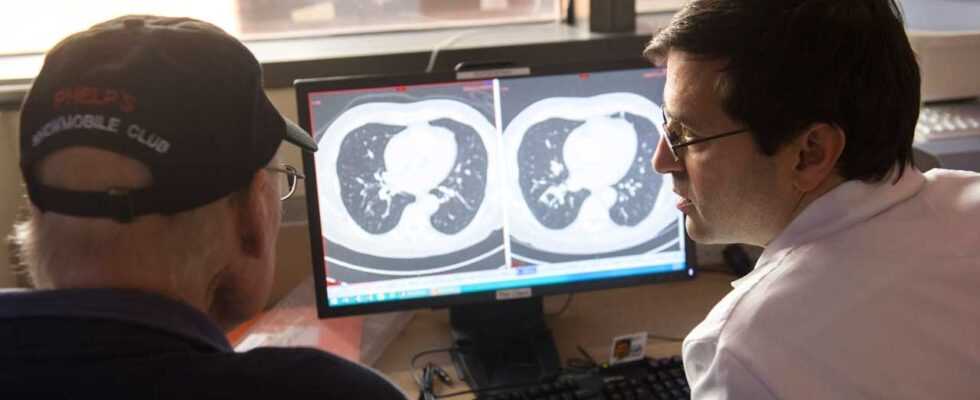French health authorities spoke out on Tuesday for the limited-scale experimentation of lung cancer screening among smokers, considering however that it was too early to generalize such a device on a large scale. “The state of knowledge is still incomplete for the establishment of a systematic and organized screening program for bronchopulmonary cancer in France”, judged the High Authority for Health (HAS) in an opinion. However, it would be welcome to launch “from now on the commitment of a pilot program” to test the waters, nuance this opinion.
This updates a previous opinion from 2016, in which the HAS had already opposed screening organized by scanner for lung cancer, the deadliest in France with some 33,000 annual deaths. New studies have meanwhile been published on the interest of such screening in smokers, lung cancer being mostly linked to smoking.
The necessary experimentation of screening
This work is not enough for the time being to change the HAS’s opinion as to the advisability of a vast screening program, but they lead it to admit the interest of an experiment on the subject. Indeed, these studies tend to show that screening “in people with an increased risk of this cancer reduces the specific mortality of it”, according to the HAS. This therefore supports the potential interest of testing smokers, in the idea that lung cancer detected early has a much better chance of recovery than if it is detected at an advanced stage.
This strategy, for example in force in the United States, has been defended for several years by certain pulmonologists, who regret the reluctance of the French health authorities. But organized screening also poses public health risks. The authorities essentially fear a risk of “overdiagnosis”: identifying tumors that would not evolve into cancer anyway and, consequently, imposing heavy and unnecessary treatments on the patient.
To obtain more certainty, “large-scale French experiments are necessary to make it possible to respond to the various outstanding points and to decide on the most suitable screening methods for the French system”, concludes the HAS, which calls for these studies to be delegated to the National Cancer Institute (INCa).
